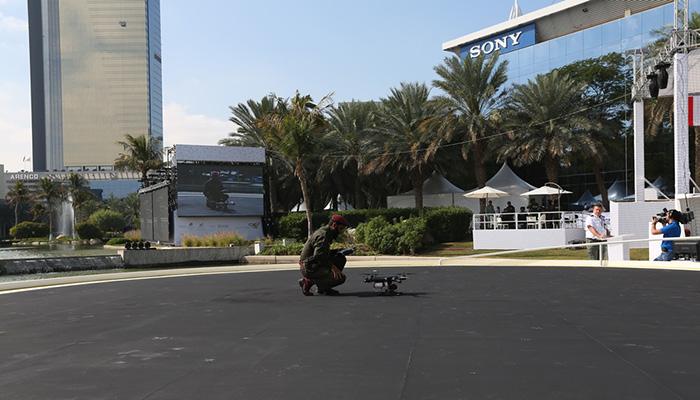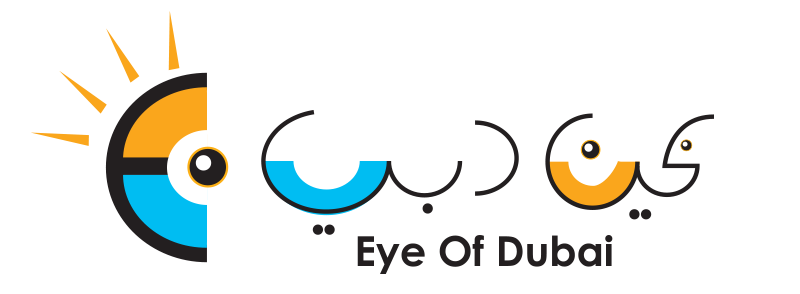
Expert highlights the UAE as ideal location for ‘Humanitarian UAV Centre of Excellence’
With the UAE already underlining its credentials as the world’s largest donor of humanitarian aid and aiming to be the first global logistics hub for distributing humanitarian aid by 2021, an expert on how big data is changing the face of humanitarian response highlighted the nation as the ideal location for a ‘Humanitarian UAV Centre of Excellence.’
Addressing a session at the first ‘UAE Drones for Good Award’, the largest award of its kind in the world held at Dubai Internet City, Patrick Meier, an internationally recognised though-leader on humanitarian technology and innovation, underlined the role that Unmanned Aerial Vehicles (drones) can play in ensuring swift humanitarian relief and rehabilitation work.
He said that it is important to sustain the momentum generated in advancing the drone technology stating that providing assistance to people when needed by leveraging UAVs is a ‘humanitarian imperative.’
Presenting compelling portraits of how drones have helped distressed populations following natural disasters, Mr. Meier said that drone technology must be socially inclusive and employed for the welfare of the entire community, particularly calling for the participation of women. “Inclusivity is key and it is important to have a community-centred approach,” he said.
Mr. Meier observed that time is of the essence in deploying drones for disaster relief, and such responses can be accelerated through three modes – crowd sourcing, artificial intelligence and a blend of both. With an army of ‘Micromappers’ - digital volunteers who provide data from the ground – disaster responses can be hastened, observed Mr. Meier. The integration of data, thus crowdsourced, is swiftly sliced using artificial intelligence to arrive at actionable disaster relief plans.
Mr. Meier said that even as drone technology is used to support natural disasters, it is equally important to use it for strife-torn areas. “Nearly 70 per cent of the world’s crises have violent conflicts and while it is difficult and risky to operate in these areas, it is not reason enough to exclude these disaster zones.” He cited how drone technology is being leveraged to assist Syrian refugees in disseminating news over the borders.
He added that it is also important to educate the policymakers and engage them in UAV technology and make them part of the solution.
In another session, Daniel Pack, chairman of University of Texas at San Antonio's electrical and computer engineering department, explained the advantages of using multiple UAVs (MUAVs) to achieve flexibility and operational cost efficiency. MUAVs can be effective in applications such as law enforcement, environmental sensing operations, particularly air pollution monitoring, Pack explained. Pack said MUAV technology also has potential in rescue missions involving mind-controlled drones, a technology he is working on currently.
The applications of drones to revolutionise agriculture and bring amazing new advances across various sectors was highlighted by member of judging panel Vijay Kumar, UPS Foundation Professor at University of Pennsylvania, USA. He said that deploying drone technology has the potential to elevate crop yields by 100 per cent through precision farming, while also achieving a decrease in the use of raw materials needed by 90 per cent. He detailed the elaborate application of drones in farming across various countries and how it can lead to increased productivity.
Launched by His Highness Sheikh Mohammed bin Rashid Al Maktoum at the second Government Summit in February 2014, the UAE Drones for Good Award received overwhelming response from all around the world with over 800 local, Arab and international entries.
‘The UAE Drones for Good Award’ aims to make optimal use of technology to serve humanity and enhance the happiness of the community through highly efficient service delivery.
Addressing a session at the first ‘UAE Drones for Good Award’, the largest award of its kind in the world held at Dubai Internet City, Patrick Meier, an internationally recognised though-leader on humanitarian technology and innovation, underlined the role that Unmanned Aerial Vehicles (drones) can play in ensuring swift humanitarian relief and rehabilitation work.
He said that it is important to sustain the momentum generated in advancing the drone technology stating that providing assistance to people when needed by leveraging UAVs is a ‘humanitarian imperative.’
Presenting compelling portraits of how drones have helped distressed populations following natural disasters, Mr. Meier said that drone technology must be socially inclusive and employed for the welfare of the entire community, particularly calling for the participation of women. “Inclusivity is key and it is important to have a community-centred approach,” he said.
Mr. Meier observed that time is of the essence in deploying drones for disaster relief, and such responses can be accelerated through three modes – crowd sourcing, artificial intelligence and a blend of both. With an army of ‘Micromappers’ - digital volunteers who provide data from the ground – disaster responses can be hastened, observed Mr. Meier. The integration of data, thus crowdsourced, is swiftly sliced using artificial intelligence to arrive at actionable disaster relief plans.
Mr. Meier said that even as drone technology is used to support natural disasters, it is equally important to use it for strife-torn areas. “Nearly 70 per cent of the world’s crises have violent conflicts and while it is difficult and risky to operate in these areas, it is not reason enough to exclude these disaster zones.” He cited how drone technology is being leveraged to assist Syrian refugees in disseminating news over the borders.
He added that it is also important to educate the policymakers and engage them in UAV technology and make them part of the solution.
In another session, Daniel Pack, chairman of University of Texas at San Antonio's electrical and computer engineering department, explained the advantages of using multiple UAVs (MUAVs) to achieve flexibility and operational cost efficiency. MUAVs can be effective in applications such as law enforcement, environmental sensing operations, particularly air pollution monitoring, Pack explained. Pack said MUAV technology also has potential in rescue missions involving mind-controlled drones, a technology he is working on currently.
The applications of drones to revolutionise agriculture and bring amazing new advances across various sectors was highlighted by member of judging panel Vijay Kumar, UPS Foundation Professor at University of Pennsylvania, USA. He said that deploying drone technology has the potential to elevate crop yields by 100 per cent through precision farming, while also achieving a decrease in the use of raw materials needed by 90 per cent. He detailed the elaborate application of drones in farming across various countries and how it can lead to increased productivity.
Launched by His Highness Sheikh Mohammed bin Rashid Al Maktoum at the second Government Summit in February 2014, the UAE Drones for Good Award received overwhelming response from all around the world with over 800 local, Arab and international entries.
‘The UAE Drones for Good Award’ aims to make optimal use of technology to serve humanity and enhance the happiness of the community through highly efficient service delivery.
Share:
ADD TO EYE OF Dubai
MOST POPULAR
The Events Investment Fund Announces Strategic Joint Venture with the World’s Largest Venue Management Operator
Thursday 11 December, 2025 10:51NHC CEO warns of rising land prices
Tuesday 9 December, 2025 1:08Diriyah, Apple sign lease deal to open retail store in Diriyah Square
Tuesday 9 December, 2025 12:57Saudi Arabia, Qatar ink deal to build high-speed electric rail link
Tuesday 9 December, 2025 1:03 ×





























